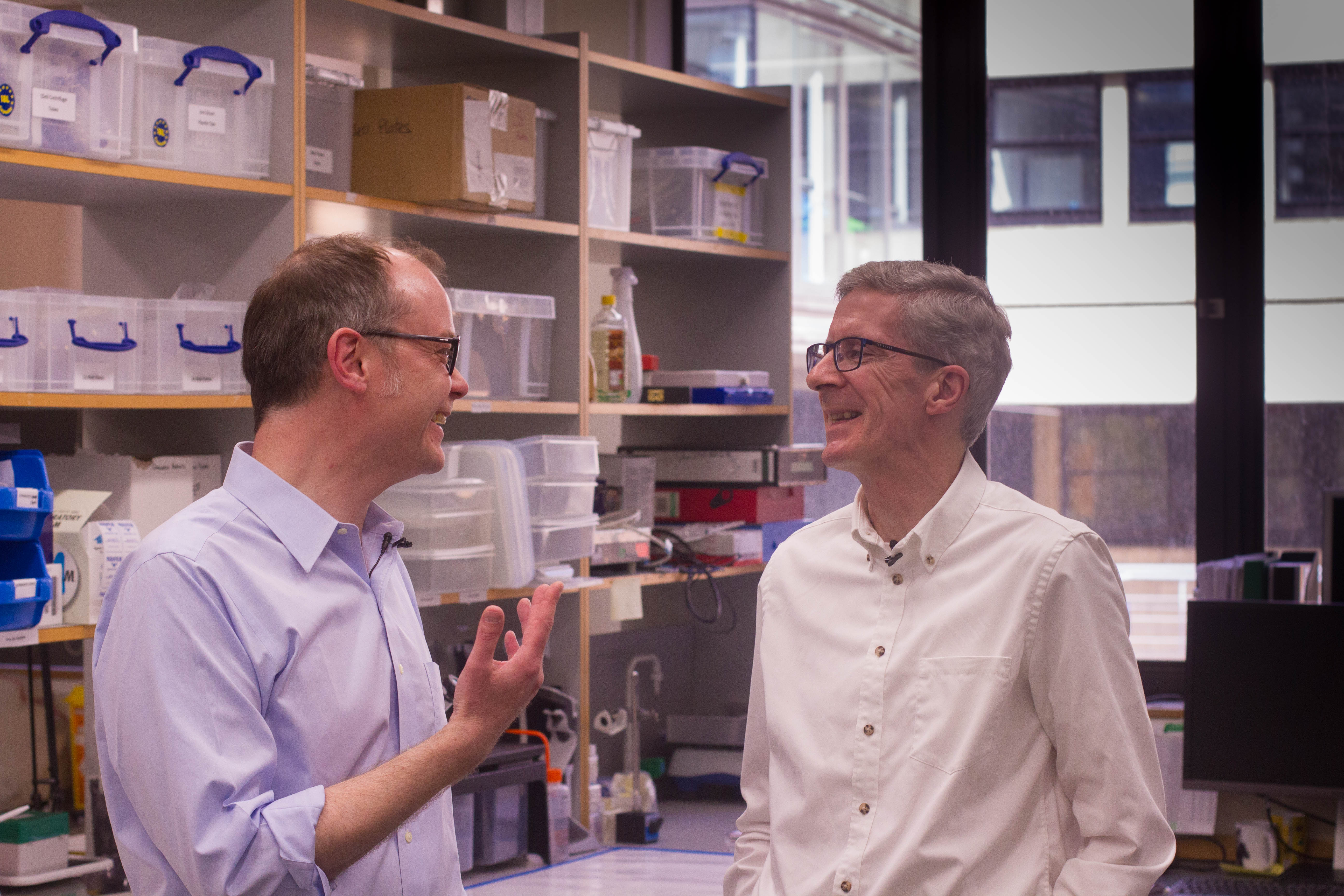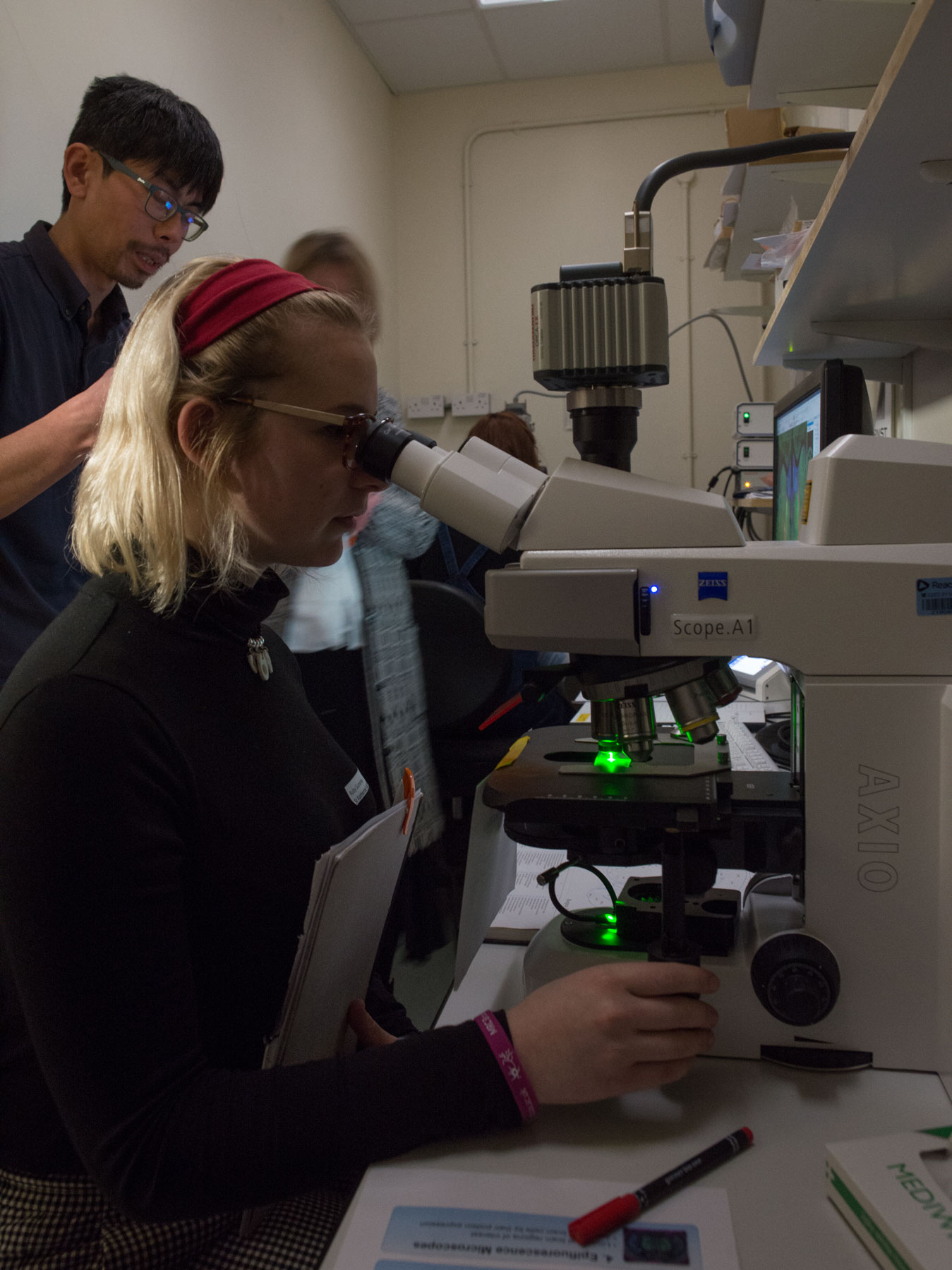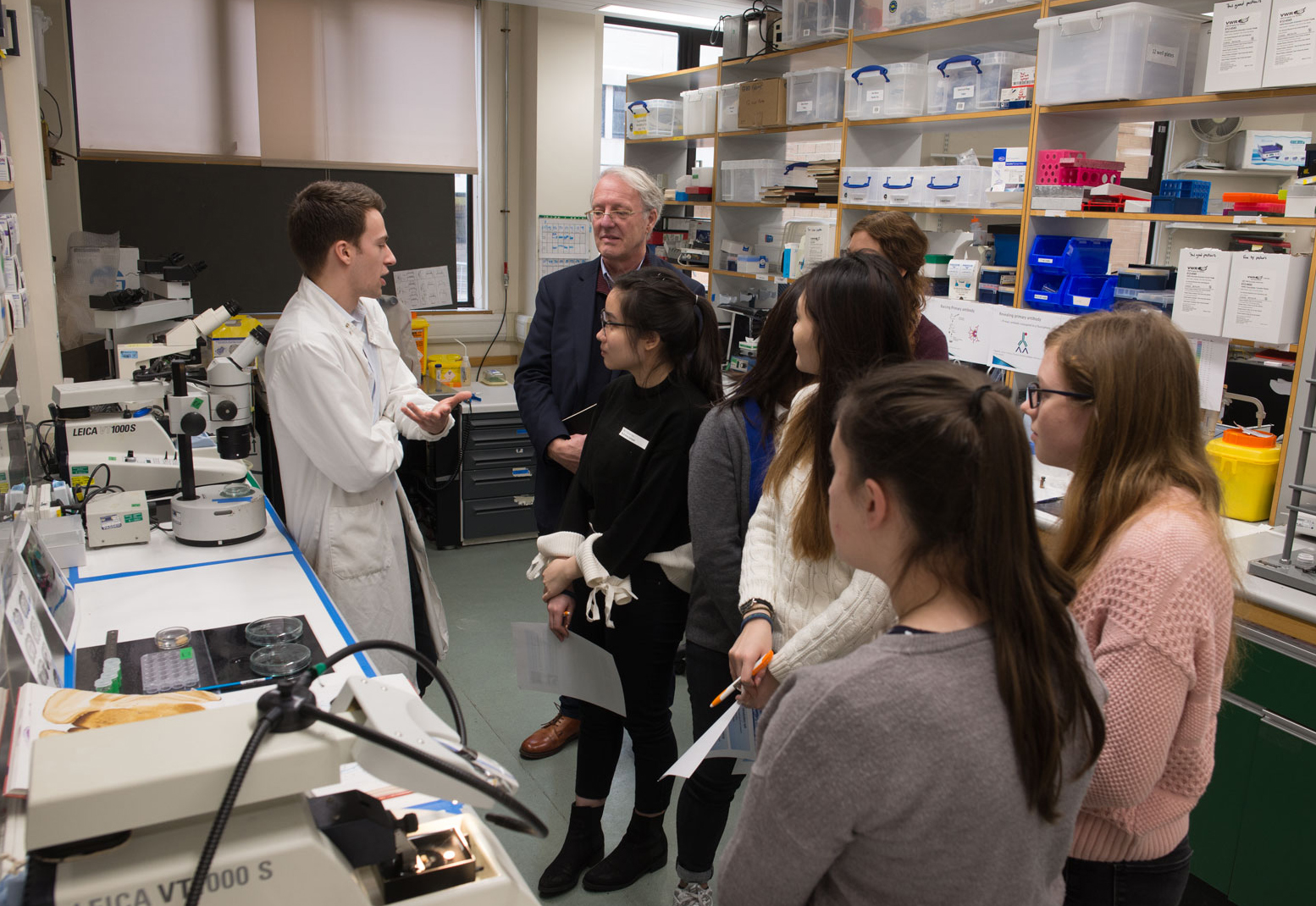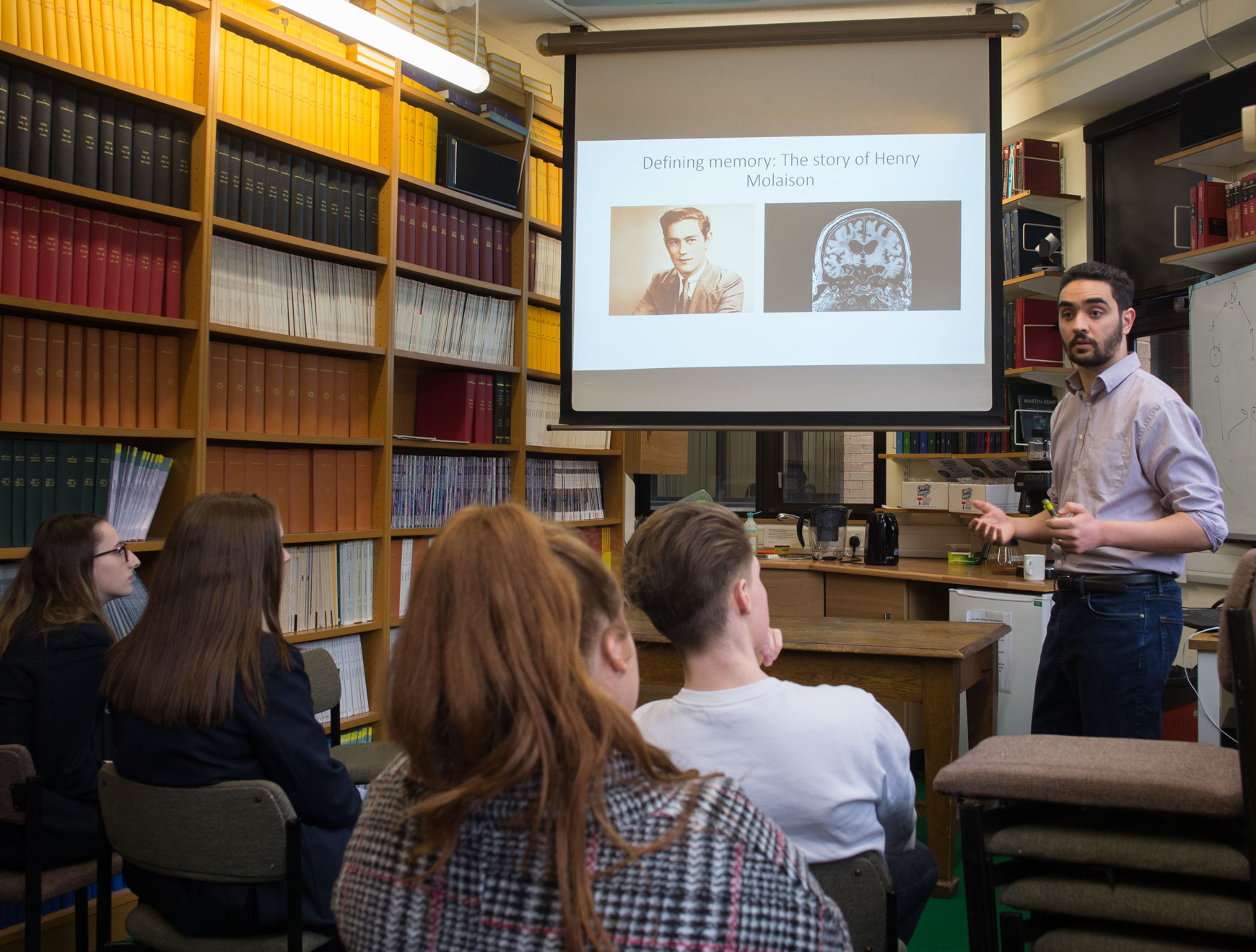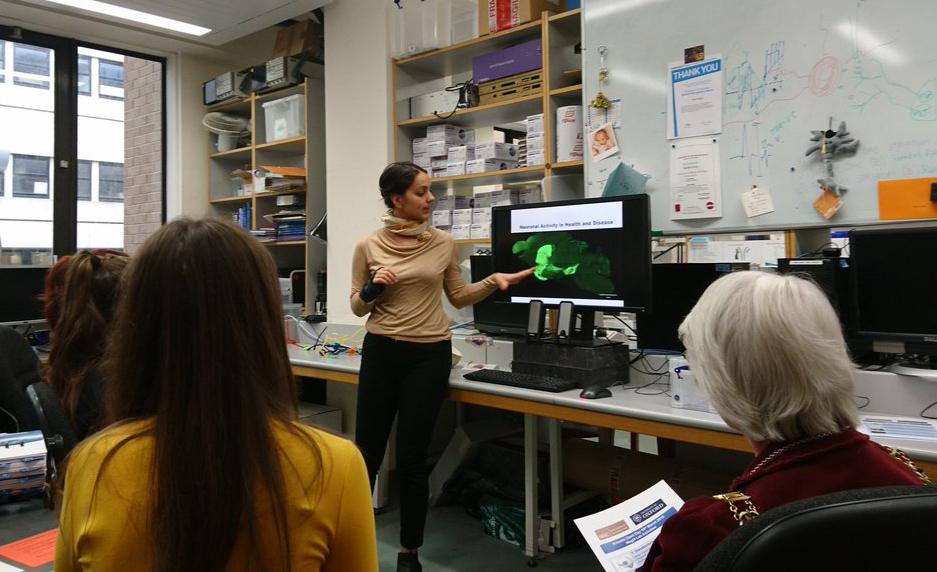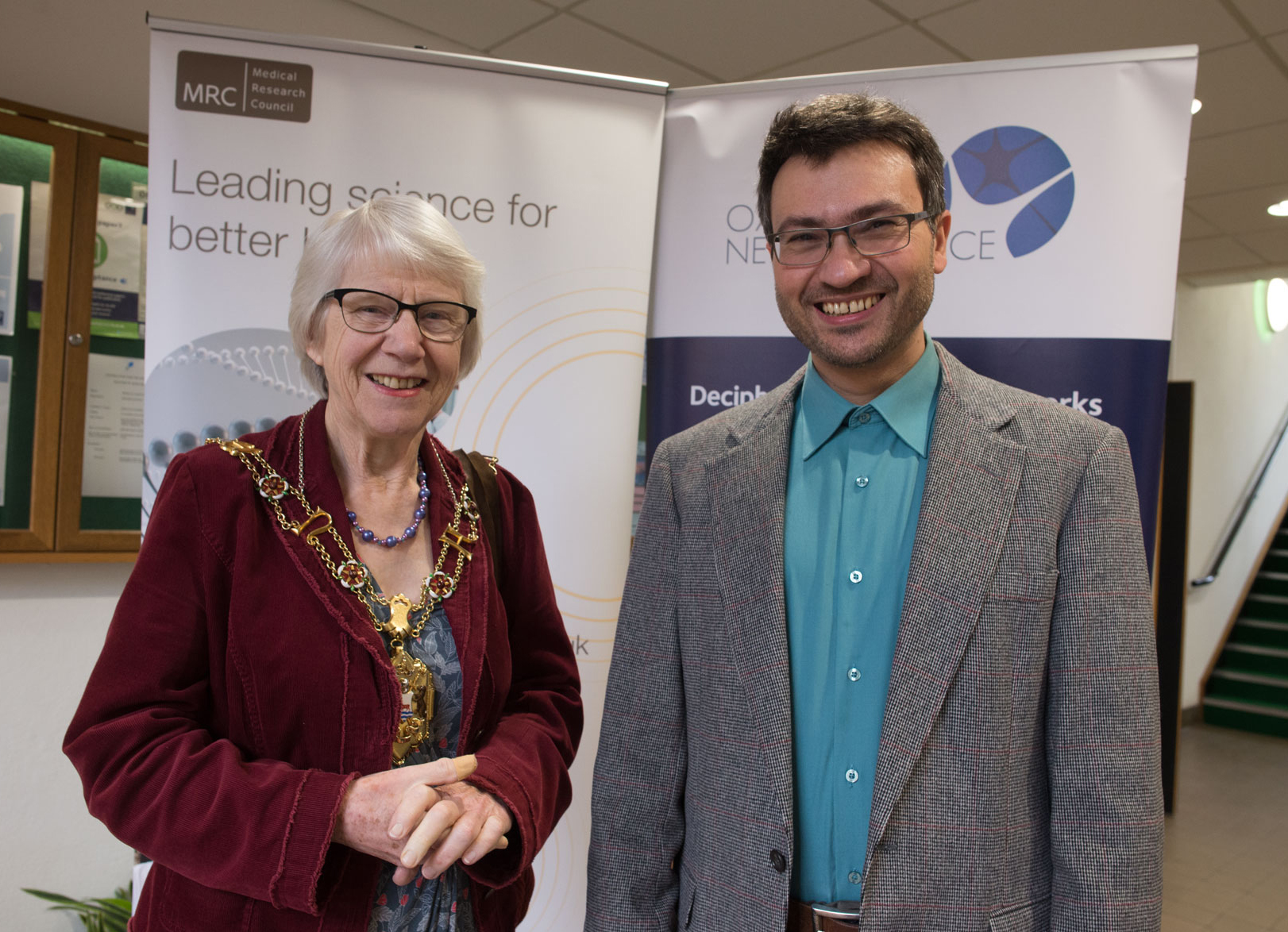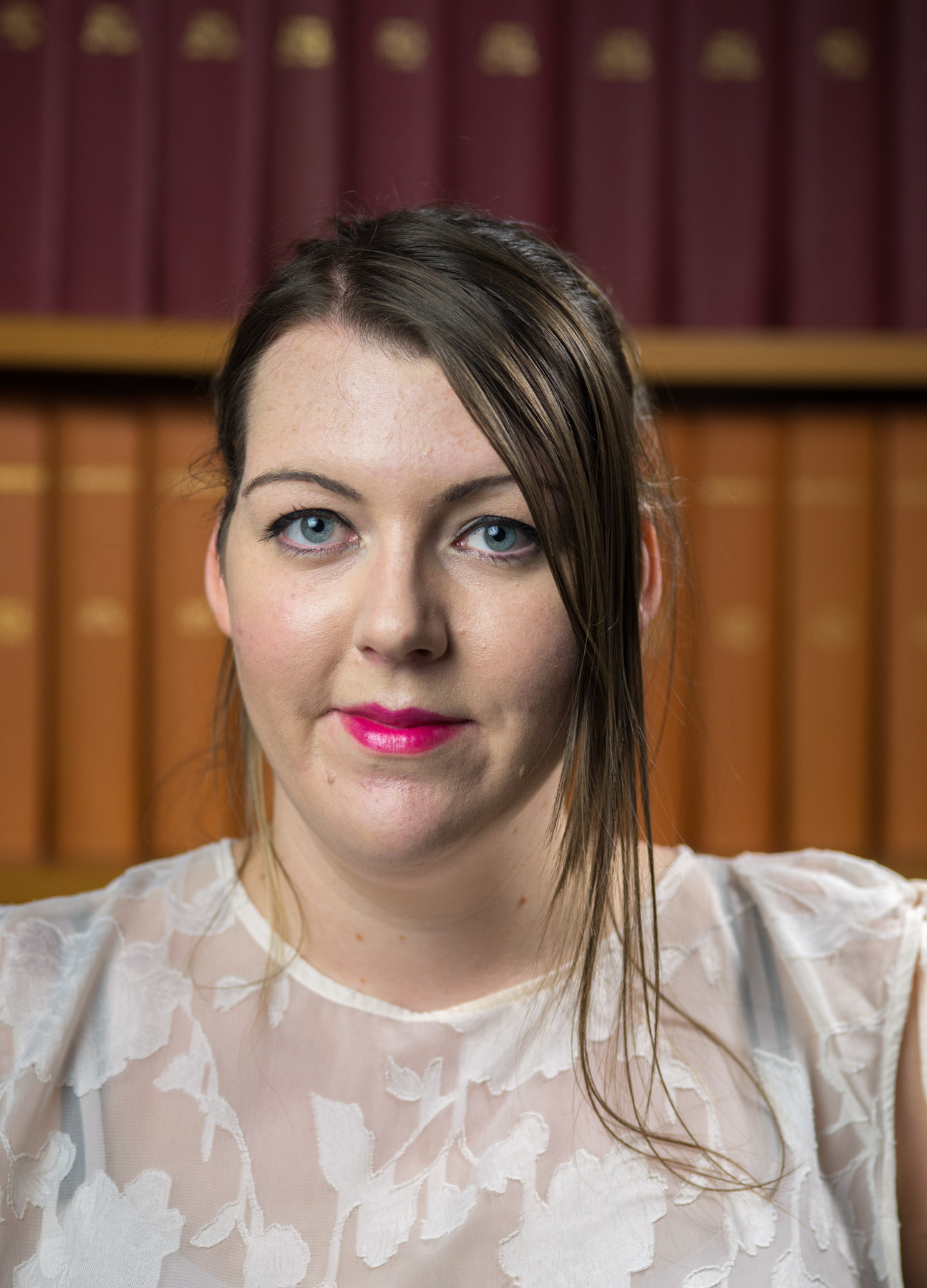
We are pleased to welcome Lauren Waite to the Unit as a Research Technician working jointly in the Sharott Group and Magill Group. Lauren will be supporting the Groups’ core research into the functional organisation of the basal ganglia, using a combination of anatomical, surgical and behavioural techniques.
Lauren graduated with a B.Sc. (hons.) degree in Biochemistry and Neuroscience from the University of Keele in 2016, and stayed on to complete an M.Sc. in Neuroscience, graduating in 2018. As part of Lauren’s postgraduate course, she undertook an international research placement at Lund University, Sweden, where she investigated novel animal models of Parkinsonism. Just before joining the Unit, Lauren worked as a Graduate Research Intern at the Queensland Brain Institute, Australia.
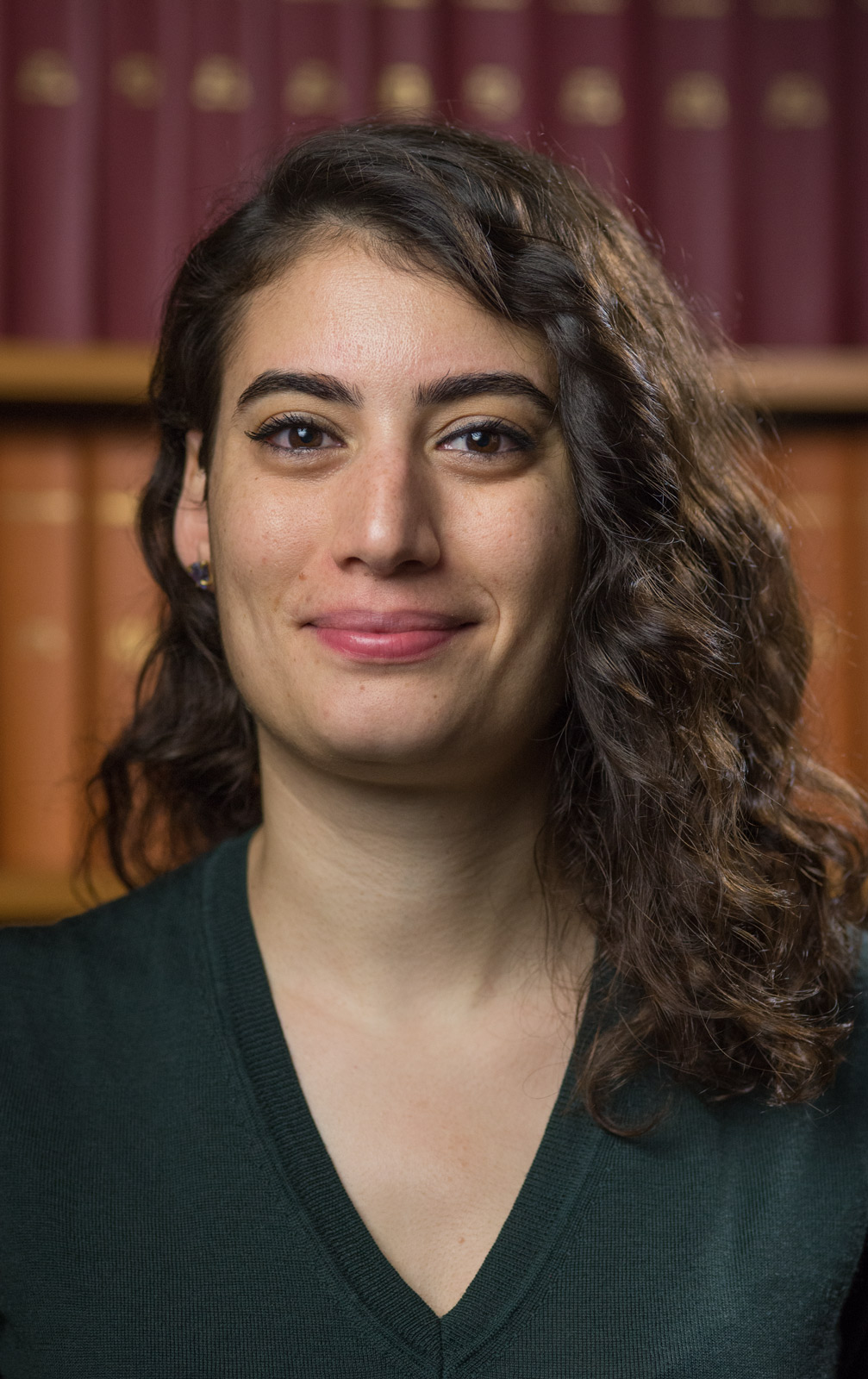
We are pleased to welcome Dr Hayriye Cagnan to the Unit as a Senior Postdoctoral Neuroscientist in the Sharott Group.
Hayriye has just finished an MRC Skills Development Fellowship in Biomedical Informatics, held at the Wellcome Trust Centre for Neuroimaging at University College London. Hayriye's Fellowship research there was focused on understanding the role of synchrony and its impact on neural communication in movement disorders.
Here in the Unit, Hayriye will continue to work on these research themes and will be exploring transient neural dynamics across the cortico-basal ganglia circuit, using a combination of electrophysiological recordings and theoretical modeling.
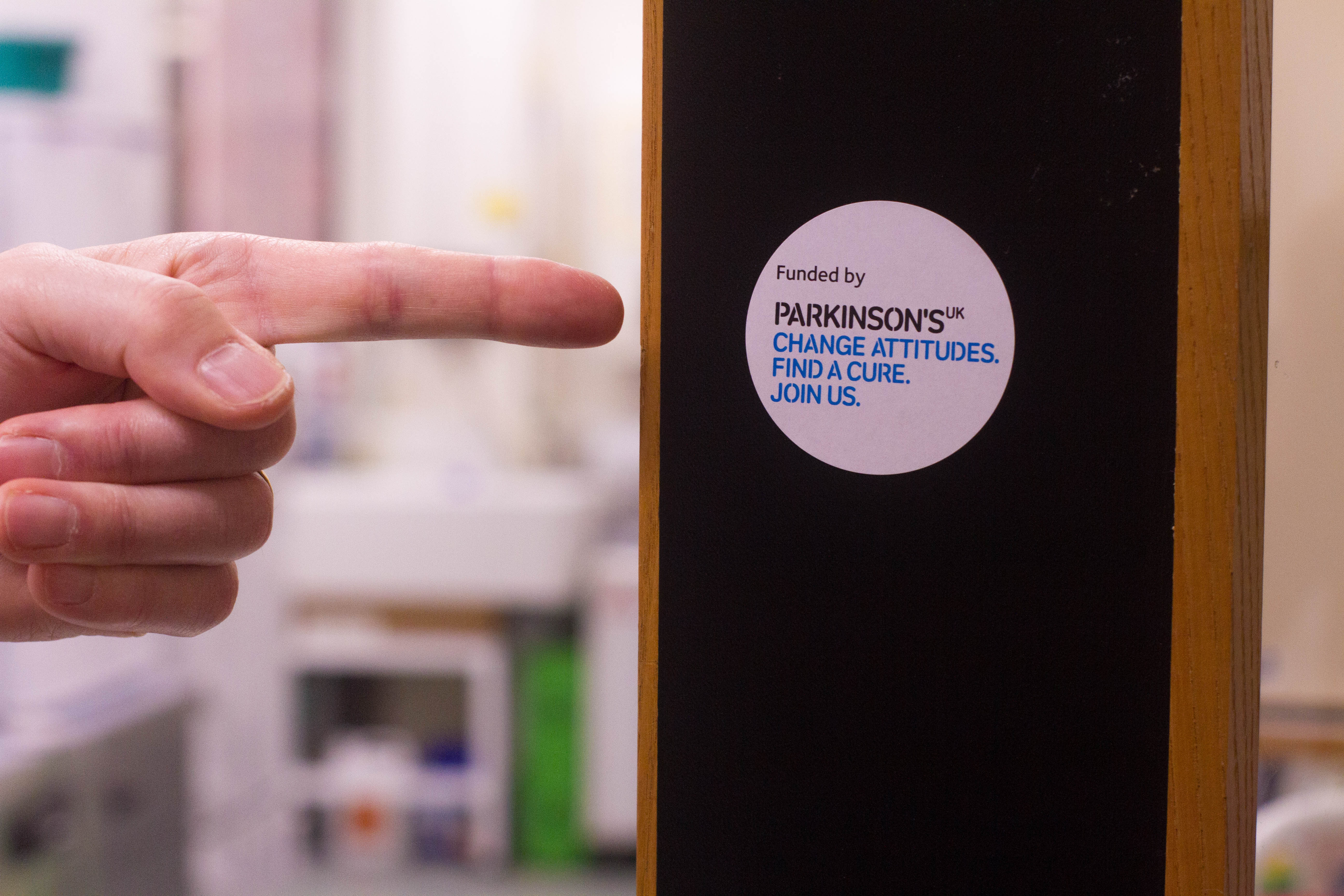
One of the MRC BNDU’s new research projects, led by Unit scientists Professor Peter Magill and Dr Paul Dodson, was recently chosen by the charity Parkinson’s UK as a focus of its new fundraising appeal.
As part of supporting the appeal, Peter hosted staff and lay members of Parkinson’s UK for a visit to the Unit. Peter gave a tour of Unit labs and equipment, and was also interviewed about the science underpinning the new project.
The Unit’s new research project is now featured in videos on the charity’s website and YouTube channel.

Many congratulations to the Unit’s long-time collaborator Tim Denison, who has been awarded a Royal Academy of Engineering Chair in Emerging Technologies.
Tim is currently Vice President for Research and Core Technology at Medtronic, where he specializes in neuromodulation and bioelectronics. With the award of his new Chair, Tim will move to the University of Oxford in summer 2018 as Professor of Neurotechnology, using his new post and proximity to further develop his research links with Unit scientists.
Tim’s new research programme, entitled “Brain engineering: towards closed-loop, non-invasive bioelectronic therapies for neurological disorders”, will explore the future of adaptive bioelectronics by, first, developing the key scientific instrumentation required to better understand how the brain functions and adapts to a range of interventions including deep brain stimulation, ultrasound and transcranial electro-magnetic stimulation, and secondly, in collaboration with clinician partners at the Unit and elsewhere, applying these tools and know-how to prototype concepts for future disease treatments; all with the goal of ultimate clinical translation.
Tim commented, “This is an exciting time for research at the interface of engineering, neuroscience and neurology, and I look forward to progressing it by joining forces with the community of scientists and clinicians at the MRC Brain Network Dynamics Unit.”
Unit Director Peter Brown commented, “Tim is a great scientist, with an excellent track record of enabling engineering to impact on clinical management. We are really looking forward to working even more closely with Tim to bring some of the discoveries made in the Unit closer to clinical benefit.”
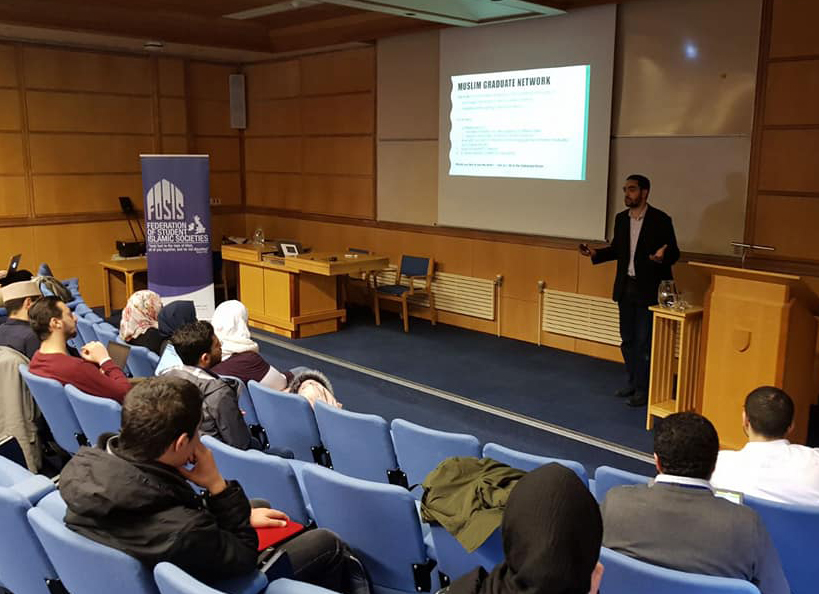
Unit scientist Dr. Mohamady El-Gaby recently extended the Unit’s work in widening access and participation (WAP) through taking part in the inaugural National Muslim Student Research Conference, organized by the Federation of Student Islamic Societies, and held at St Anthony’s College, Oxford. The conference aimed to promote Muslim engagement in academic research, through showcasing research across multiple disciplines and promoting interactions between students and professional academics.
Mohamady led a workshop entitled “Getting Started in Academia”, which covered routes into academic research, admission to graduate courses (including Ph.D.), and early career development. Mohamady also contributed to a panel discussion on the experiences of Muslims early in their academic careers. This event also saw the launch of a Muslim Graduate Network, which has already resulted in cross-disciplinary collaborations such as those bringing together neuroscience, artificial intelligence and philosophy.
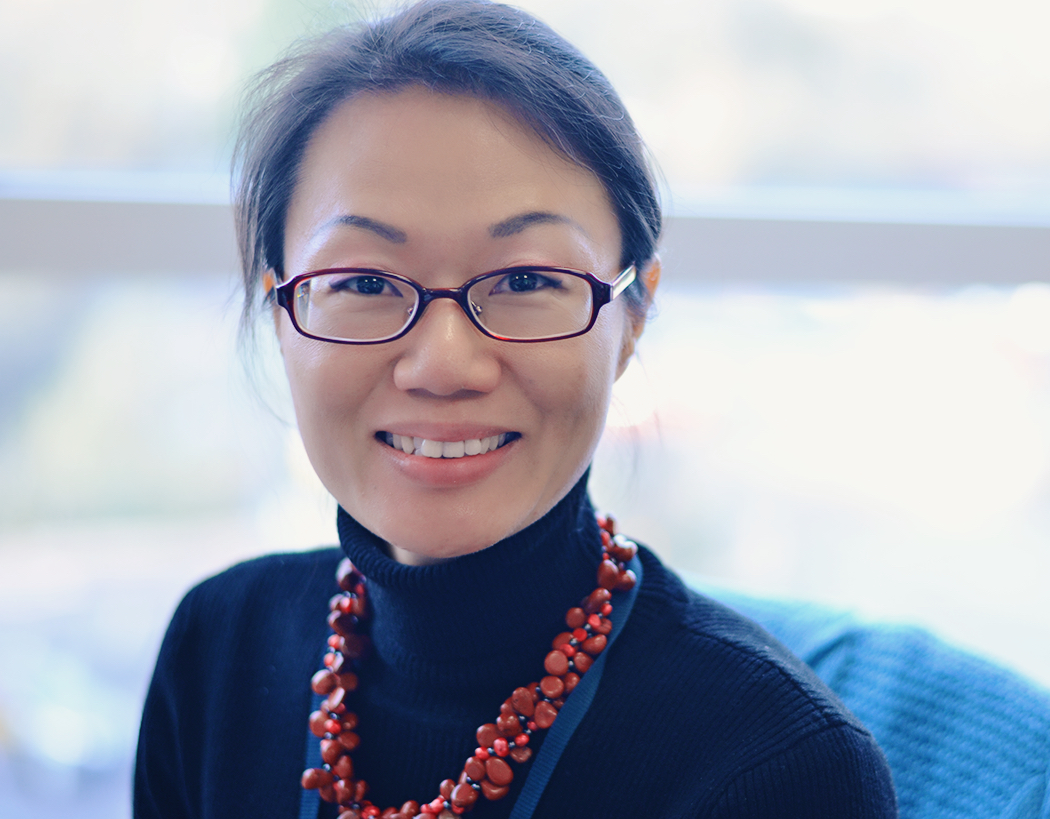
Congratulations to Unit scientist and University Research Lecturer Dr Huiling Tan, who has been awarded funding from Oxford’s Wellcome Institutional Strategic Support Fund (Wellcome ISSF) as well as the Rosetrees Trust in support of complementary aspects of her research on the use of Brain-Computer Interfaces in next-generation therapeutic interventions for human movement disorders.
The Wellcome ISSF at Oxford supports strategically important activity across the University in biomedical and clinical sciences, public health, social sciences and the medical humanities. Huiling will leverage the funding to explore the utility of machine learning methods for decoding of movement intention from subcortical recordings of brain activity.
The Rosetrees Trust provides grants to fund outstanding research projects across all areas of human health and disease. Huiling’s new 3-year research project will focus on developing closed-loop Deep Brain Stimulation as a treatment for people with Essential Tremor. Within this framework, the target brain area is stimulated only when necessary, saving on battery power and potentially improving outcomes as well as reducing side-effects.
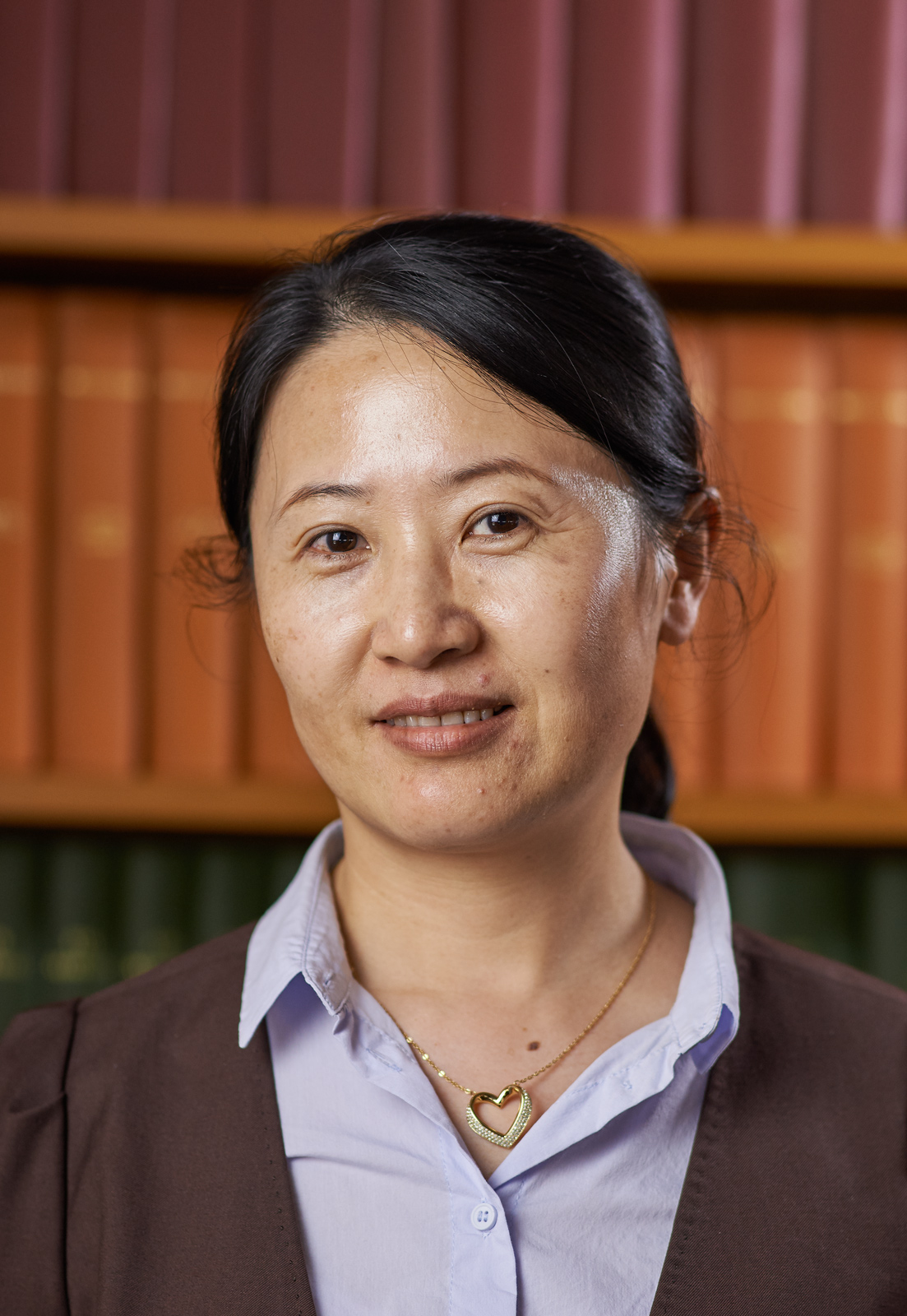
We are pleased to welcome Dr. Chunyan Cao to the Unit as a Visiting Research Fellow. Chunyan has joined Professor Peter Brown’s Group, where she will be supervised by Dr Huiling Tan.
Chunyan’s visit is funded by the Affiliated Ruijin Hospital, Shanghai Jiao Tong University in Shanghai, China, where she works as a neurologist and neurophysiologist in the Department of Functional Neurosurgery. Her academic interest is the mechanism of deep brain stimulation treatment, as revealed by magnetoencephalographic and local field potential recording studies. During her stay in the Unit, Chunyan will primarily design protocols for collaborative clinical studies upon her return to China and learn relevant signals analysis techniques.
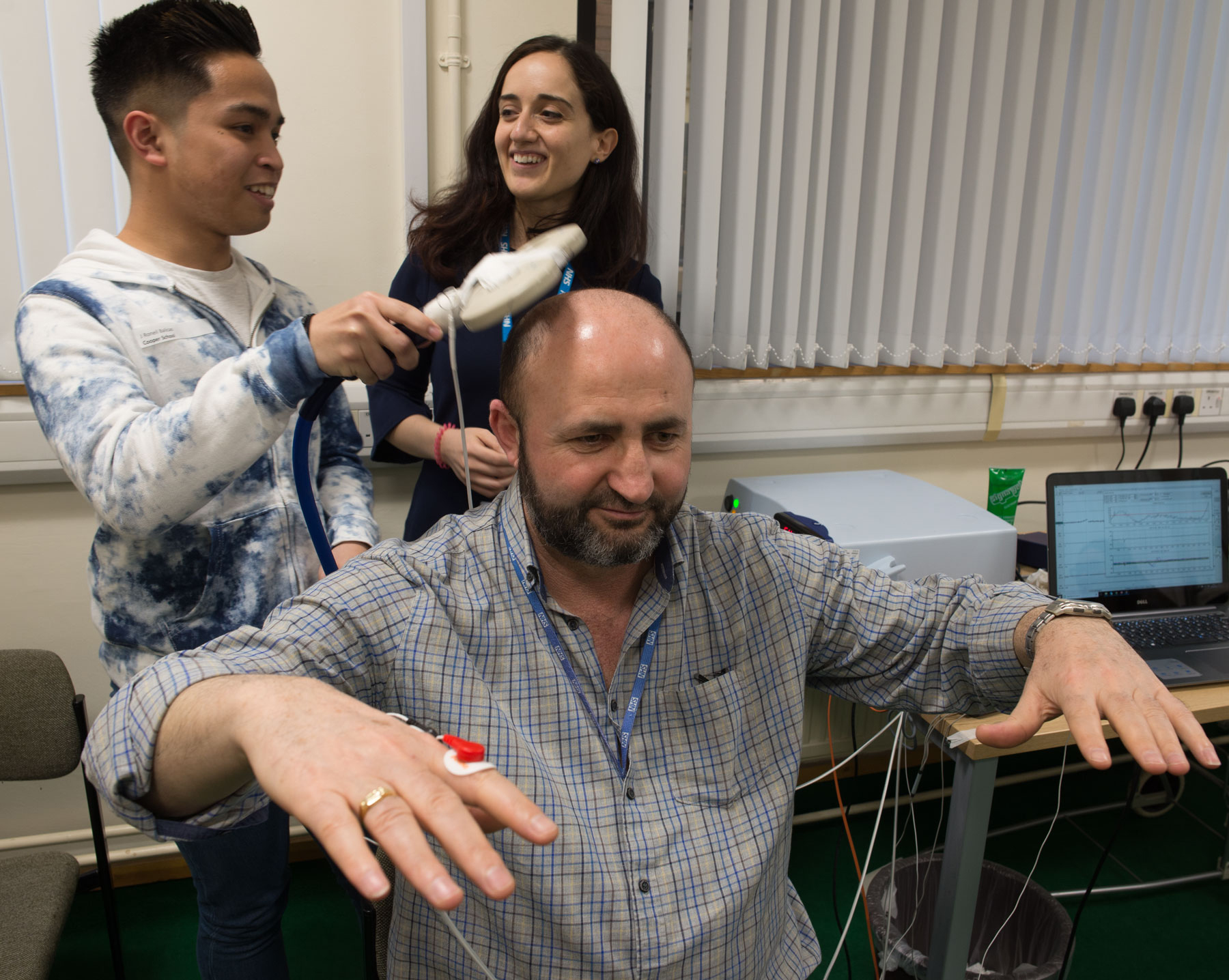
On 15th March, the MRC Brain Network Dynamics Unit welcomed pupils, teachers and local Councillors to its annual Schools Open Day.
Almost 100 pupils and their teachers, from 7 state-funded and private schools in Oxford city and wider Oxfordshire, took the opportunity to visit and learn more about STEM (science, technology, engineering and mathematics) at the MRC Unit. During their visits, pupils in small groups talked informally to Unit members about key concepts and challenges in brain research, as well as what it is like working in STEM. Special emphasis was also placed on giving pupils the opportunity to try some ‘hands on’ science and to see real working instruments and laboratories for themselves. Activities were coordinated around 6 ‘knowledge stations’, at which pupils could experience some of the Unit’s core research themes, including human brain stimulation, computer modelling of brain function, the brain in health and Parkinson’s disease, electrical activity in the brain, the nerve cell networks of memory, and the use of animals in medical research. At the end of the visit, pupils had refreshments and were given souvenirs to take home.
The Lord Mayor of Oxford, and local Councillors Elizabeth Gillespie and Chris Wright, also visited to learn more about the brain research carried out at the Unit.
Unit Deputy Director Peter Magill commented “Unit members were delighted to share their work with visitors, who in return were clearly enthusiastic and involved. Another fantastic Schools Open Day at the MRC BNDU. ”
The Unit’s Schools Open Day was one of many engaging events held at the University of Oxford during Brain Awareness Week 2018.
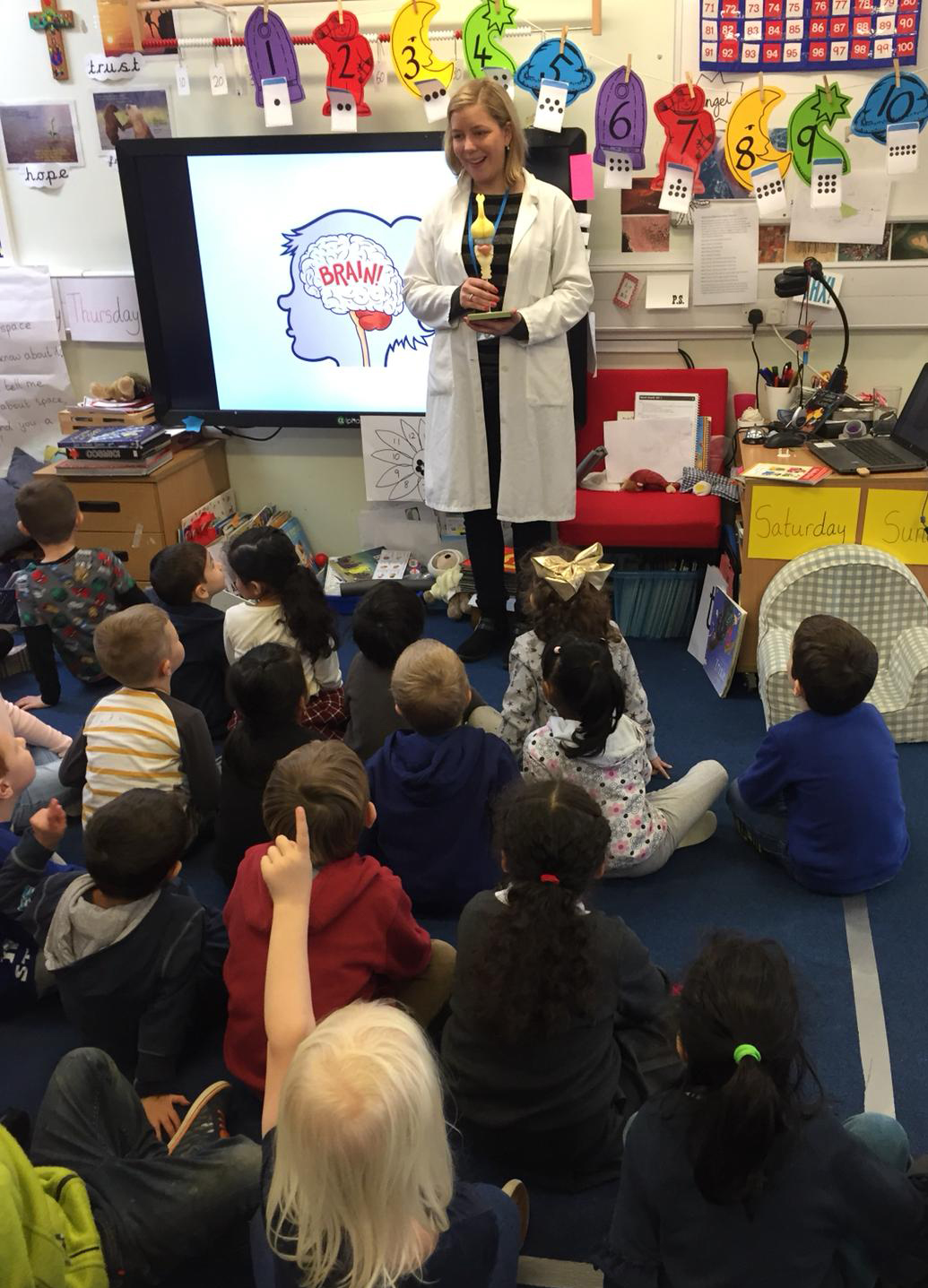
Unit scientists Dr Natalie Doig and Dr Abbey Holt recently visited pupils at St Andrew’s C. of E. Primary School in central Oxford, to help them learn more about science, scientists, and how the brain works.
The visit was made in support of the state-funded school’s inaugural STEM Festival, a deep-learning week created to deliver a variety of interactive experiences to each year group, including off-site and in-school activities, and opportunities to meet professionals working in STEM (Science, Technology, Engineering and Mathematics).
Armed with a variety of eye-catching demonstration aids taken from the Unit’s Public Engagement Toolbox, Natalie and Abbey spent a morning with the 4 and 5 year-old children in the Rainbows and Sunflowers classes. After Natalie introduced what a scientist is and does, the children were guided through a series of games that were designed to highlight how the brain controls memory and movement. The children then compared plastic animal brains, and took turns at wearing the ‘Brain Hat’, with the goal of learning that different parts of different brains do different things. Natalie and Abbey then helped the children to build colourful pipe cleaner models of nerve cells, eventually connecting the model nerve cells in long strings to ‘pass messages’. At the end of the session, the children were encouraged to don some rubber gloves and explore the Unit’s brain tissue specimens for themselves.
Natalie commented: “The children at St Andrew’s were wonderful; they were enthusiastic, involved and asked lots of great questions – I think they enjoyed the visit as much as I did!”
Abbey commented: “Visiting St. Andrew's was a great experience - the children were so curious and engaged in the different activities. At the end of the visit, the children shared what they had learned, and I was very impressed!”
School teacher Kelly Faye commented: “Many parents came to speak to me to report how excited their children had been when recounting the visit after school. The children mentioned what our brains are for and were especially excited at having touched a real brain.”
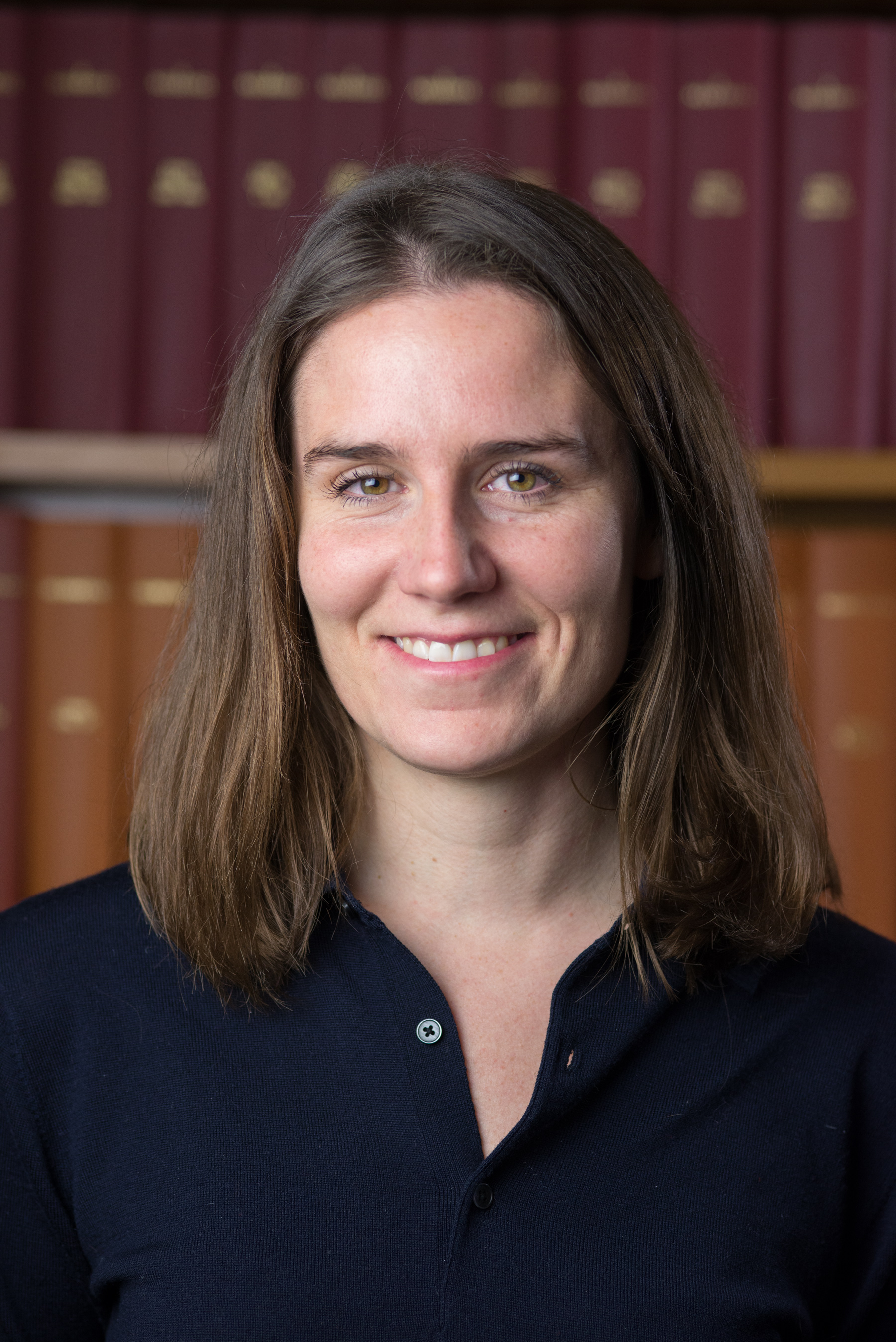
We are pleased to welcome Dr. Roxanne Lofredi to the Unit as a Visiting Research Fellow. Roxanne has joined Professor Peter Brown’s Group, where she will be supervised by Dr. Huiling Tan.
Roxanne’s visit is funded by a scholarship from the German Academic Exchange Service (DAAD). Roxanne is a neurologist, affiliated to the Movement Disorders and Neuromodulation Unit directed by Prof. Andrea Kühn at Charité – Universitätsmedizin Berlin. Roxanne graduated in medicine from the medical universities Berlin and Heidelberg, after having obtained a degree in Psychology from the University Paris 8. Before pursuing her interest in human neurophysiology, Roxanne completed her medical thesis on single-cell electrophysiology within the spatial navigation system in Prof. Miles group at ICM Paris. With Prof. Kühn, she worked on movement-related activity in subcortical structures of Parkinson’s disease patients. During her stay, Roxanne will further investigate the reciprocal relationships of different oscillatory patterns in movement control.
